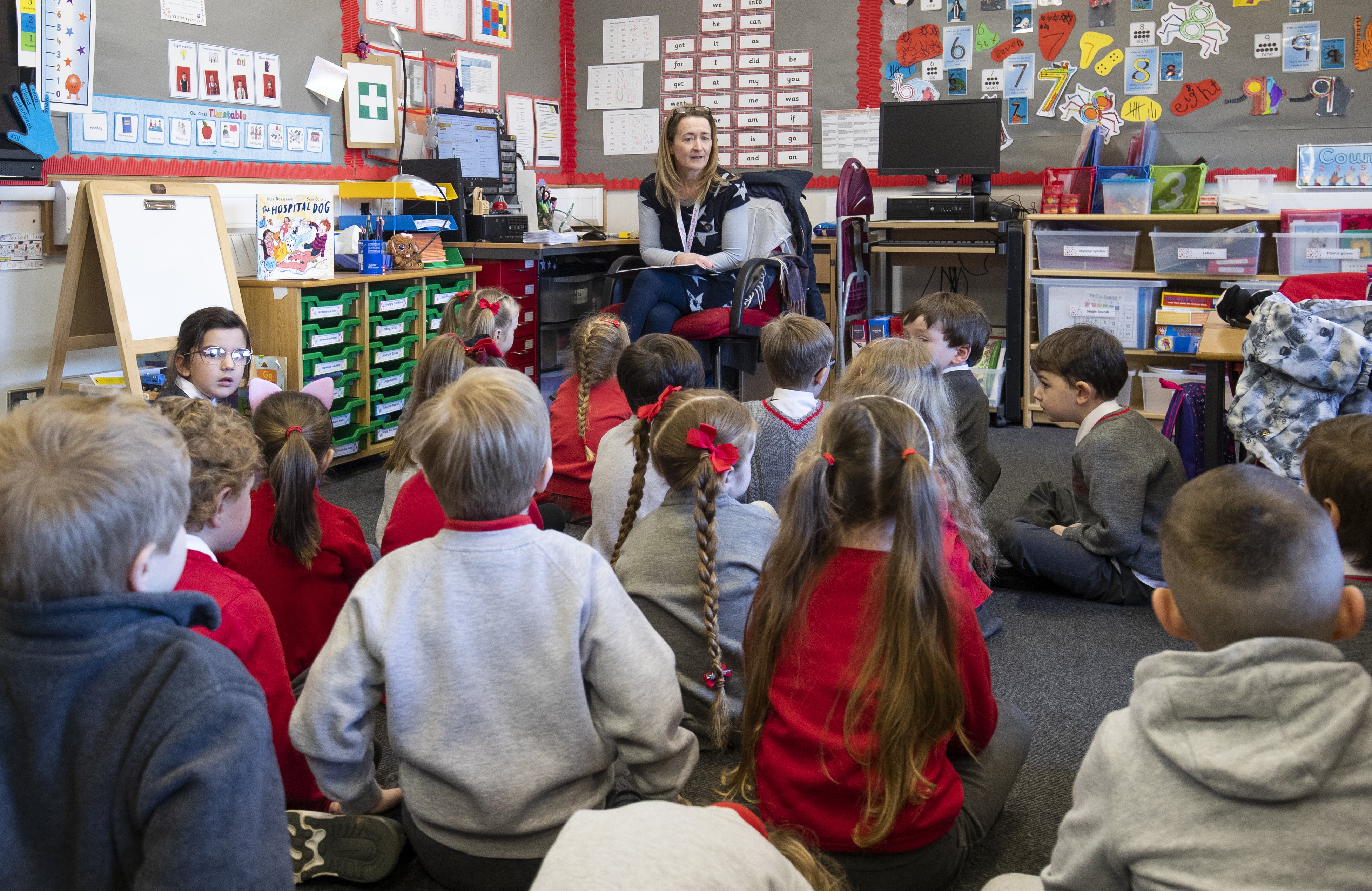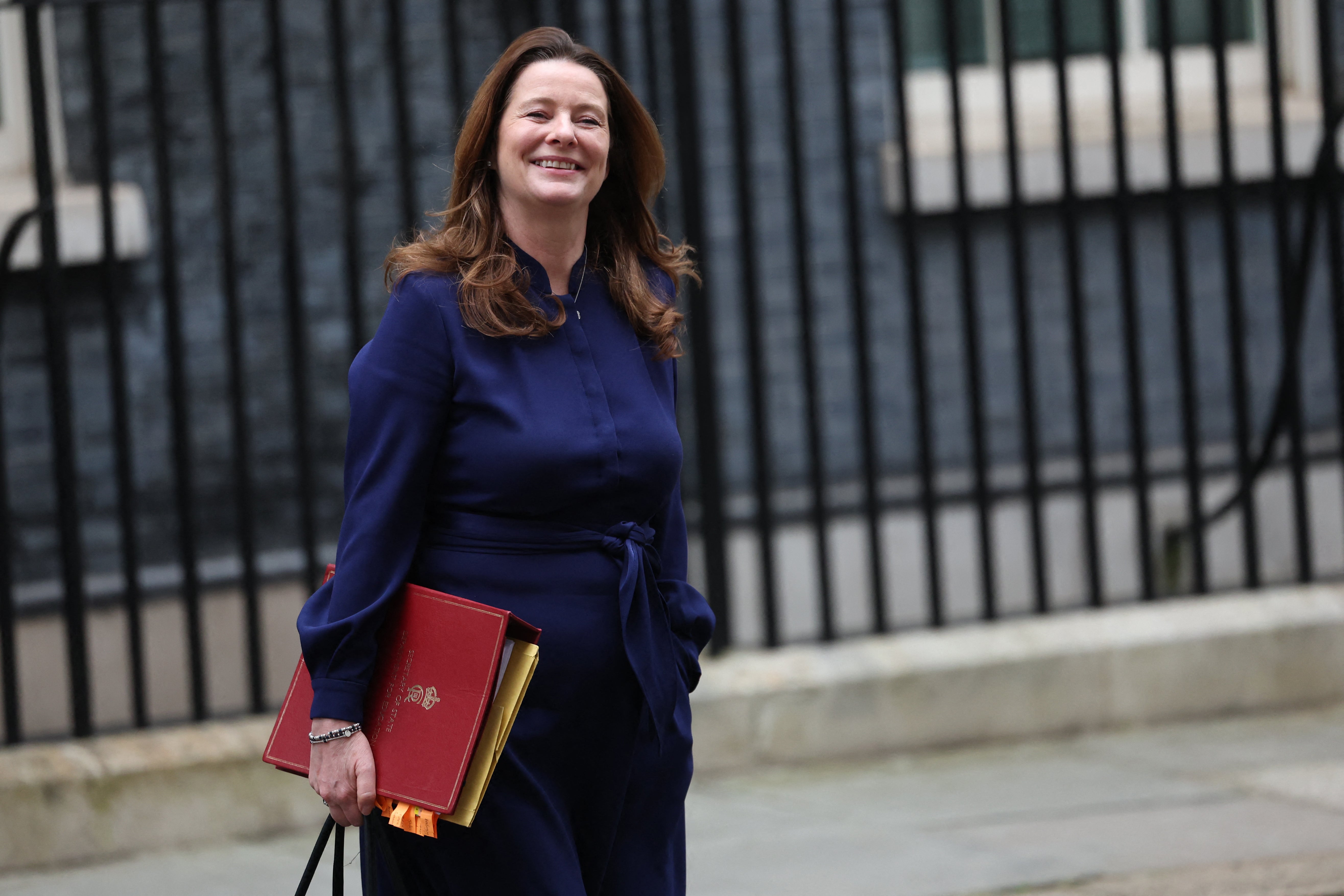Parents working from home blamed as school truancy a fifth higher on Fridays
Experts say main driver is ‘crisis in mental health’ and ‘breakdown of trust’ between schools and parents

Your support helps us to tell the story
From reproductive rights to climate change to Big Tech, The Independent is on the ground when the story is developing. Whether it's investigating the financials of Elon Musk's pro-Trump PAC or producing our latest documentary, 'The A Word', which shines a light on the American women fighting for reproductive rights, we know how important it is to parse out the facts from the messaging.
At such a critical moment in US history, we need reporters on the ground. Your donation allows us to keep sending journalists to speak to both sides of the story.
The Independent is trusted by Americans across the entire political spectrum. And unlike many other quality news outlets, we choose not to lock Americans out of our reporting and analysis with paywalls. We believe quality journalism should be available to everyone, paid for by those who can afford it.
Your support makes all the difference.An increase in parents working from home since the pandemic could be fuelling a rise in children being absent from school on Fridays, education secretary Gillian Keegan has claimed.
Unauthorised school absences have jumped by 25 per cent on pre-Covid levels, and have been found to be 20 per cent higher on Fridays than Wednesdays, according to analysis of government figures.
The largest gap is in primary schools, where pupils are 21 per cent more likely to be absent on a Friday and 24 per cent more likely to be off school without a stated reason.

Warning “the Covid pandemic has had a major impact on school attendance”, Ms Keegan claimed on Friday this “could be linked with many parents working from home”, citing absence rates rising from 4.7 per cent in 2019 to 7 per cent this year, and an increase in unauthorised holiday absences.
As part of a push to restore social norms about children attending school every day, the education secretary wrote in The Times that improving attendance was her “top priority”, telling parents: “We are very clear – it is unacceptable to take a deliberate decision to take your child out of school.
“Every day a child is absent they will miss on average five to six lessons – time they will never get back,” she said, warning that there are “regularly 50,000 more pupil absences on Fridays compared with Mondays”.
But experts have cast doubt over Ms Keegan’s claims that parents’ home-working arrangements are to blame, and it is unclear whether Friday absences specifically have risen at a faster rate since the pandemic as no data is available for that period. Unauthorised holidays have also fallen as a proportion of all absences.
While previous polling by Sir Iain Duncan Smith’s Centre for Social Justice suggested that nearly three in 10 parents believe the pandemic has shown it is not essential for children to go to school every day, a researcher at the think tank said ministers should not seek to blame parents.

“The main drivers of the school attendance crisis is mental health and anxiety in children. Despite the education secretary saying absence is a top priority, the actual response has not reflected that at all. The government should do more to support children and families,” Beth Prescott told The Times.
“There definitely has been a breakdown in relationships, trust and communication between schools and families,” she added. “It will be hard to encourage children back into school unless parents are fully involved.”
Labelling school absenteeism a “national crisis”, Professor Lee Elliot Major of Exeter University said a major factor was the “fundamental breakdown between what parents and children want from schools and what the current curriculum offers”.
While the professor of social mobility said there was no doubt that absences are slightly higher on Fridays, he added: “Our analysis found that school absenteeism is impacting on children from all but the highest income groups, but it is hard to know exactly what is driving this.”
Official figures show absences among pupils who receive free school meals rose from 7.5 per cent in 2018-2019 to 11.1 per cent in 2022-2023, while increasing from 4.2 to 6.1 per cent among pupils who did not.
Illness remains the largest driver, accounting for half of all school absences, while unauthorised absences account for just over a fifth. Unauthorised holidays account for just 6 per cent of absences, a rate which has decreased since the pandemic, analysis by The Independent found.
Pepe Di’Iasio, chief of the Association of School and College Leaders, said: “We have heard of parents who are working from home wanting to allow their children to stay home too, and this is obviously unreasonable and disruptive both to the child and the school. But this is not the main driver of pupil absence.
“High rates of pupil absence are being driven by factors such as poor mental health, unmet special educational needs, and families who are struggling to cope, and these are just not being adequately addressed by the government.”
Join our commenting forum
Join thought-provoking conversations, follow other Independent readers and see their replies
Comments